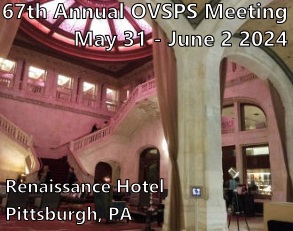<< Back to the abstract archive
The Utility of Formal Breast & Hand Simulation and Ultrasound Courses in Plastic Surgery Education - One Institution's Experience
Joanna H. Ng-Glazier, MD and Jeffrey A. Gusenoff, MD
University of Pittsburgh Medical Center
2020-02-15
Presenter: Joanna H. Ng-Glazier
Affidavit:
This abstract has not been previously published in any scientific journal or previously presented at a major meeting.
Director Name: Vu T. Nguyen, MD
Author Category: Resident Plastic Surgery
Presentation Category: Basic Science Research
Abstract Category: General Reconstruction
BACKGROUND: The role of simulation has not been well defined in plastic surgery. We present our experience on the development and integration of a low-cost, formal simulation curriculum at our institution.
METHODS: Residents identified several topics of technical deficiency in their current educational structure and a multi-session curriculum was developed in 2018 to address these topics, supplemented by electronic material and low-cost models to target these skills. Improvement in knowledge, technical skill, comfort, and overall satisfaction, model quality, and course value were measured before and after each session, compared via paired t-test, =0.05. Repeat sessions were held one year after, noting similar variables and skill retention.
RESULTS: 24 residents (100%) participated in sessions targeting preoperative breast markings, use of ultrasound for bedside procedures, and fracture pinning. Average post-simulation knowledge and skill comfort doubled for all sessions, including breast markings (p<0.01), ultrasound-guided procedures including aspiration of abscess, seroma, upper extremity nerve blocks, (p<0.01), and drilling/pinning across hand and joint fractures (p<0.01). Session satisfaction ratings were 8.64, 9.13, and 9.25, respectively. Stratification by training year indicated different impact based on year and pathway (traditional or integrated). Repeat sessions one year later revealed > 50% skill retention and higher baseline comfort level for all participants. Both faculty and resident ability to identify ruptured or intact implants and periprosthetic fluid collections were scored.
CONCLUSION: Our results suggest that a formal simulation curriculum can successfully enhance resident education and clinical experience. Retention improves with repetition, and certain ultrasound skills can benefit faculty as well.



